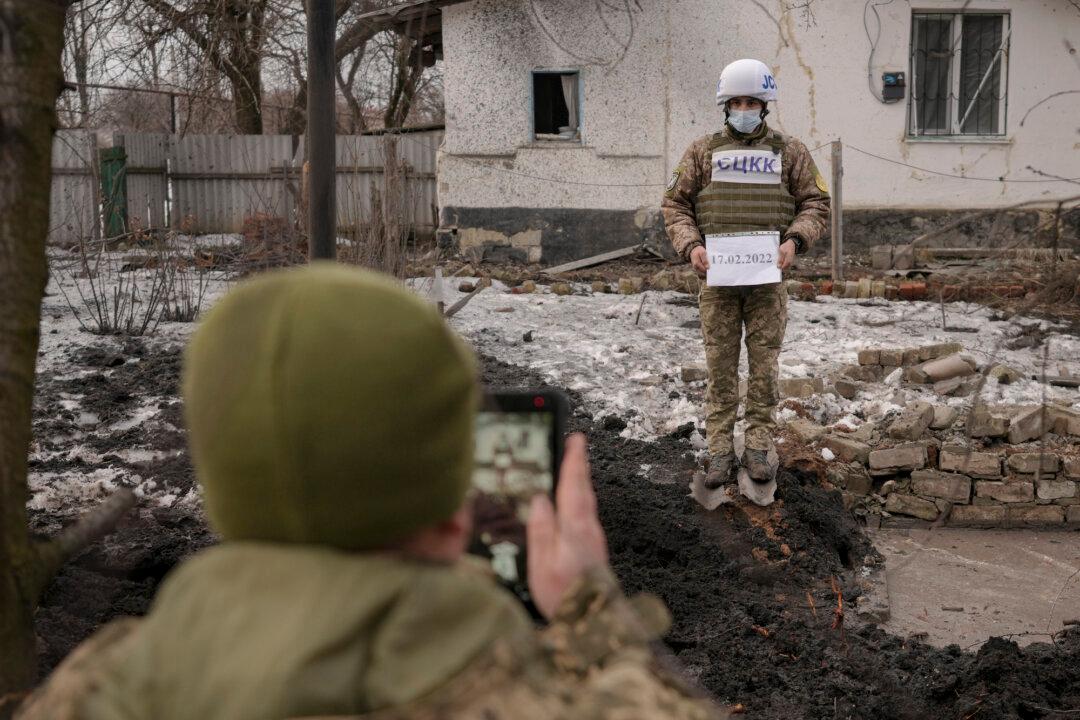Russia extended military drills near Ukraine’s northern borders on Feb. 20 as Ukrainian President Volodymyr Zelensky said he supports an immediate ceasefire in the eastern portion of the country.
The exercises, originally set to end on Feb. 20, brought a sizable contingent of Russian forces to neighboring Belarus, which borders Ukraine to the north. The presence of the Russian troops raised concern that they could be used to sweep down on Kyiv, the Ukrainian capital.





